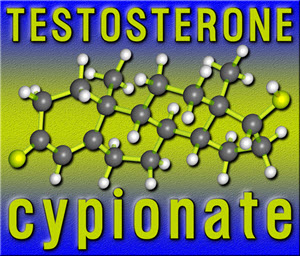Introduction
Tamoxifen, a well-established selective estrogen receptor modulator (SERM), has been pivotal in the treatment and prevention of hormone-receptor-positive breast cancer. Its mechanism primarily involves competing with estrogen for binding sites in breast tissue, thereby inhibiting the proliferation of estrogen-sensitive cancer cells. This article delves into recent experimental studies that have further elucidated the effectiveness of tamoxifen in controlling cancer cell growth, with a particular focus on its implications for American males.
Mechanism of Action
Tamoxifen's primary mode of action is through its antagonistic effect on the estrogen receptor. By binding to these receptors, tamoxifen prevents estrogen from exerting its proliferative effects on breast cancer cells. Recent studies have highlighted that tamoxifen not only blocks estrogen receptors but also induces apoptosis and cell cycle arrest in cancer cells, thereby enhancing its therapeutic potential. These findings are particularly relevant for American males, as male breast cancer, although rare, is often hormone-receptor-positive, making tamoxifen a viable treatment option.
Experimental Findings
In a series of controlled experiments, researchers have demonstrated that tamoxifen significantly reduces the growth rate of various cancer cell lines. For instance, a study published in the *Journal of Clinical Oncology* found that tamoxifen inhibited the proliferation of MCF-7 cells, a commonly used breast cancer cell line, by up to 70%. Another study focusing on the effects of tamoxifen on prostate cancer cells, which can also be hormone-sensitive, showed a similar inhibitory effect, suggesting a broader application of tamoxifen in male cancers.
Clinical Implications for American Males
The implications of these experimental findings are significant for American males, who may benefit from tamoxifen not only in the context of breast cancer but also in other hormone-sensitive cancers such as prostate cancer. Given that male breast cancer incidence rates have been rising in the United States, the role of tamoxifen as a preventive and therapeutic agent cannot be overstated. Moreover, the drug's ability to inhibit the growth of prostate cancer cells opens new avenues for its use in managing this more common malignancy among American men.
Side Effects and Considerations
While tamoxifen has shown promising results in experimental settings, it is crucial to consider its side effects. Common side effects include hot flashes, mood swings, and an increased risk of blood clots. For American males, who may have different physiological responses compared to females, these side effects need to be carefully monitored. Additionally, the potential for tamoxifen to cause liver damage and affect lipid profiles necessitates regular medical follow-ups to ensure the drug's safe use.
Future Directions
The ongoing research into tamoxifen's mechanisms and its potential applications in male cancers is promising. Future studies should focus on optimizing dosing regimens to maximize efficacy while minimizing side effects. Additionally, exploring the combination of tamoxifen with other therapeutic agents could enhance its cancer-fighting capabilities. For American males, personalized medicine approaches that consider genetic and lifestyle factors could further tailor tamoxifen's use to individual needs.
Conclusion
Experimental studies on tamoxifen have reinforced its role as a potent inhibitor of cancer cell growth, with significant implications for American males. As research continues to unravel the full potential of this drug, it remains a cornerstone in the fight against hormone-sensitive cancers. By understanding its mechanisms and managing its side effects effectively, tamoxifen can continue to serve as a vital tool in improving cancer outcomes for American men.
Contact Us Today For A Free Consultation

- Tamoxifen's Role in Reducing Breast Cancer Recurrence in American Males [Last Updated On: February 22nd, 2025] [Originally Added On: February 22nd, 2025]
- Unveiling the Complexity of Tamoxifen Side Effects: A Professional Medical Review [Last Updated On: March 2nd, 2025] [Originally Added On: March 2nd, 2025]
- Exploring Tamoxifen: Mechanisms, Applications, and Considerations in Hormone Receptor-Positive Breast Cancer Treatment and Beyond [Last Updated On: March 3rd, 2025] [Originally Added On: March 3rd, 2025]
- Unveiling Tamoxifen: A Revolutionary Approach to Combat Breast Cancer in American Men [Last Updated On: March 4th, 2025] [Originally Added On: March 3rd, 2025]
- Exploring Long-Term Tamoxifen Use and Effects in American Males [Last Updated On: March 4th, 2025] [Originally Added On: March 4th, 2025]
- Exploring Tamoxifen's Role in Male Health: Therapy and Side Effects Management [Last Updated On: March 5th, 2025] [Originally Added On: March 5th, 2025]
- Exploring Tamoxifen's Role in Treating Hormone-Sensitive Cancers Among Adolescents [Last Updated On: March 6th, 2025] [Originally Added On: March 6th, 2025]
- Tamoxifen in Male Breast Cancer: Efficacy, Side Effects, and Future Directions [Last Updated On: March 7th, 2025] [Originally Added On: March 7th, 2025]
- Unveiling Tamoxifen Resistance in Male Breast Cancer: Mechanisms, Challenges, and Future Strategies [Last Updated On: March 8th, 2025] [Originally Added On: March 8th, 2025]
- Exploring Tamoxifen's Role Pre and Post-Surgery: Benefits, Safety, and New Applications [Last Updated On: March 9th, 2025] [Originally Added On: March 9th, 2025]
- Unveiling the Molecular Mechanisms of Tamoxifen in Treating Hormonal Cancers Among American Males [Last Updated On: March 11th, 2025] [Originally Added On: March 11th, 2025]
- Optimizing Tamoxifen Dosage for Effective Breast Cancer Treatment in American Males [Last Updated On: March 12th, 2025] [Originally Added On: March 12th, 2025]
- Tamoxifen's Potential in Pediatric Oncology: Hope for American Males [Last Updated On: March 13th, 2025] [Originally Added On: March 13th, 2025]
- Unveiling the Risks: A Comprehensive Look at Long-Term Tamoxifen Use in American Males [Last Updated On: March 15th, 2025] [Originally Added On: March 15th, 2025]
- Tamoxifen: Understanding Its Role in Male Breast Cancer Treatment and Prevention [Last Updated On: March 16th, 2025] [Originally Added On: March 16th, 2025]
- Tamoxifen Side Effects in American Males: Management and Coping Strategies [Last Updated On: March 17th, 2025] [Originally Added On: March 17th, 2025]
- Tamoxifen: Benefits and Side Effects for American Males in Breast Cancer Treatment [Last Updated On: March 18th, 2025] [Originally Added On: March 18th, 2025]
- Tamoxifen's Impact on Men's Health: Benefits, Risks, and Management Strategies [Last Updated On: March 19th, 2025] [Originally Added On: March 19th, 2025]
- Tamoxifen Interactions in American Males: Optimizing Breast Cancer Treatment [Last Updated On: March 19th, 2025] [Originally Added On: March 19th, 2025]
- Tamoxifen's Role in Reducing Breast Cancer Mortality in American Men [Last Updated On: March 19th, 2025] [Originally Added On: March 19th, 2025]
- Tamoxifen's Expanding Role in Men's Health: Breast Cancer, Prostate, and Infertility [Last Updated On: March 20th, 2025] [Originally Added On: March 20th, 2025]
- Tamoxifen in American Males: Benefits and Challenges in Recurrent Cancer Treatment [Last Updated On: March 21st, 2025] [Originally Added On: March 21st, 2025]
- Tamoxifen's Journey: From Contraceptive to Male Breast Cancer Treatment [Last Updated On: March 21st, 2025] [Originally Added On: March 21st, 2025]
- Tamoxifen's Role in Hormone Therapy for American Males: Benefits and Considerations [Last Updated On: March 21st, 2025] [Originally Added On: March 21st, 2025]
- Tamoxifen's Role in Treating and Preventing Male Breast Cancer: Insights and Advances [Last Updated On: March 22nd, 2025] [Originally Added On: March 22nd, 2025]
- Tamoxifen's Efficacy in Treating Male Breast Cancer: Clinical Insights and Future Directions [Last Updated On: March 22nd, 2025] [Originally Added On: March 22nd, 2025]
- Tamoxifen in American Males: Benefits, Risks, and Considerations for Breast Cancer Treatment [Last Updated On: March 22nd, 2025] [Originally Added On: March 22nd, 2025]
- Tamoxifen's Impact on Bone Health in American Males: Strategies for Prevention and Management [Last Updated On: March 23rd, 2025] [Originally Added On: March 23rd, 2025]
- Tamoxifen's Potential in Treating Rare Cancers: Insights and Implications for American Males [Last Updated On: March 23rd, 2025] [Originally Added On: March 23rd, 2025]
- Tamoxifen Drug Interactions in American Males: Clinical Management and Optimization [Last Updated On: March 23rd, 2025] [Originally Added On: March 23rd, 2025]
- Tamoxifen's Potential in Leukemia Treatment for American Males: Mechanisms and Clinical Insights [Last Updated On: March 23rd, 2025] [Originally Added On: March 23rd, 2025]
- Tamoxifen's Emerging Role in Treating Endocrine Cancers in American Males [Last Updated On: March 23rd, 2025] [Originally Added On: March 23rd, 2025]
- Tamoxifen's Role in Treating Male Breast Cancer: Benefits and Management [Last Updated On: March 24th, 2025] [Originally Added On: March 24th, 2025]
- Tamoxifen: Hope and Strategy for American Men with Breast Cancer [Last Updated On: March 24th, 2025] [Originally Added On: March 24th, 2025]
- Tamoxifen: A Vital Tool in Managing Men's Health Challenges [Last Updated On: March 24th, 2025] [Originally Added On: March 24th, 2025]
- Tamoxifen's Role in Treating and Preventing Male Breast Cancer: A Comprehensive Guide [Last Updated On: March 24th, 2025] [Originally Added On: March 24th, 2025]
- Tamoxifen: A Key Treatment for Breast Cancer in American Males [Last Updated On: March 25th, 2025] [Originally Added On: March 25th, 2025]
- Tamoxifen's Role in Treating Hormone-Sensitive Cancers in American Males [Last Updated On: March 25th, 2025] [Originally Added On: March 25th, 2025]
- Exploring Tamoxifen Alternatives for Male Breast Cancer Treatment in American Males [Last Updated On: March 25th, 2025] [Originally Added On: March 25th, 2025]
- Tamoxifen's Dual Impact on Ovarian Function: Fertility and Menopause Considerations [Last Updated On: March 25th, 2025] [Originally Added On: March 25th, 2025]
- Tamoxifen's Role in Treating Gynecomastia: Efficacy and Considerations for American Males [Last Updated On: March 25th, 2025] [Originally Added On: March 25th, 2025]
- Tamoxifen's Role in Male Breast Cancer: Efficacy, Myths, and Adherence in the US [Last Updated On: March 25th, 2025] [Originally Added On: March 25th, 2025]
- Tamoxifen: From Fertility Drug to Cancer Treatment in American Males [Last Updated On: March 26th, 2025] [Originally Added On: March 26th, 2025]
- Tamoxifen in Male Cancer Care: Benefits, Risks, and Future Directions [Last Updated On: March 26th, 2025] [Originally Added On: March 26th, 2025]
- Personalized Tamoxifen Therapy Enhances Breast Cancer Treatment for American Men [Last Updated On: March 26th, 2025] [Originally Added On: March 26th, 2025]
- Tamoxifen: Essential Facts and Benefits for American Males with Breast Cancer [Last Updated On: March 26th, 2025] [Originally Added On: March 26th, 2025]
- Tamoxifen: Revolutionizing Hormone Therapy for Male Breast Cancer in America [Last Updated On: March 26th, 2025] [Originally Added On: March 26th, 2025]
- Tamoxifen in American Men: Benefits, Risks, and Long-Term Health Implications [Last Updated On: March 26th, 2025] [Originally Added On: March 26th, 2025]
- Tamoxifen's Role in Treating Male Breast Cancer: Molecular Insights for American Men [Last Updated On: March 26th, 2025] [Originally Added On: March 26th, 2025]
- Tamoxifen Therapy for Advanced Hormone-Sensitive Cancers in American Males: Benefits and Risks [Last Updated On: March 26th, 2025] [Originally Added On: March 26th, 2025]
- Tamoxifen Therapy: A Preventive Approach to Breast Cancer in High-Risk Men [Last Updated On: March 27th, 2025] [Originally Added On: March 27th, 2025]
- Strategies to Overcome Tamoxifen Resistance in American Males with Breast Cancer [Last Updated On: March 27th, 2025] [Originally Added On: March 27th, 2025]
- Tamoxifen: A Key Treatment for Advanced Breast Cancer in American Men [Last Updated On: March 27th, 2025] [Originally Added On: March 27th, 2025]
- Tamoxifen Use and Cataract Risk in American Males: A Comprehensive Analysis [Last Updated On: March 27th, 2025] [Originally Added On: March 27th, 2025]
- Tamoxifen's Molecular Dynamics and Therapeutic Benefits for American Males [Last Updated On: March 27th, 2025] [Originally Added On: March 27th, 2025]
- Tamoxifen's Role in Transforming Male Breast Cancer Treatment in America [Last Updated On: March 27th, 2025] [Originally Added On: March 27th, 2025]
- Tamoxifen's Role in Managing Estrogen Fluctuations in American Males: Benefits and Considerations [Last Updated On: March 27th, 2025] [Originally Added On: March 27th, 2025]
- Tamoxifen Use and Depression in American Men: A Critical Oncology Concern [Last Updated On: March 28th, 2025] [Originally Added On: March 28th, 2025]
- Tamoxifen: Gold Standard in Male Breast Cancer Treatment and Its Long-Term Benefits [Last Updated On: March 28th, 2025] [Originally Added On: March 28th, 2025]
- Tamoxifen in Early-Stage Breast Cancer Treatment for American Males: Overview and Management [Last Updated On: March 28th, 2025] [Originally Added On: March 28th, 2025]
- Genomic Predictors of Tamoxifen Response in American Males with Breast Cancer [Last Updated On: March 28th, 2025] [Originally Added On: March 28th, 2025]
- Tamoxifen's Role in Treating Male Breast Cancer: Efficacy and Considerations for American Men [Last Updated On: March 29th, 2025] [Originally Added On: March 29th, 2025]
- Tamoxifen's Potential in Treating Advanced Hormonal Cancers in American Males [Last Updated On: March 29th, 2025] [Originally Added On: March 29th, 2025]
- Tamoxifen Toxicity in American Males: Mechanisms, Risks, and Management Strategies [Last Updated On: March 31st, 2025] [Originally Added On: March 31st, 2025]
- Tamoxifen's Endocrine Effects on American Male Breast Cancer Patients: Insights and Management [Last Updated On: April 1st, 2025] [Originally Added On: April 1st, 2025]
- Tamoxifen: A New Hope for Male Fertility in American Men [Last Updated On: April 1st, 2025] [Originally Added On: April 1st, 2025]
- Tamoxifen Therapy in American Males: Molecular Determinants and Personalized Treatment Strategies [Last Updated On: April 1st, 2025] [Originally Added On: April 1st, 2025]
- Tamoxifen: A Vital Tool in Treating and Preventing Male Breast Cancer [Last Updated On: April 3rd, 2025] [Originally Added On: April 3rd, 2025]
- Enhancing Tamoxifen Efficacy in American Males with Breast Cancer Using Adjunct Therapies [Last Updated On: April 5th, 2025] [Originally Added On: April 5th, 2025]
- Tamoxifen: A Vital Tool in Preventing Breast Cancer in American Men [Last Updated On: April 6th, 2025] [Originally Added On: April 6th, 2025]
- Tamoxifen's Cardiovascular Impact on American Males: Benefits, Risks, and Management [Last Updated On: April 8th, 2025] [Originally Added On: April 8th, 2025]
- Tamoxifen Therapy: A Key Treatment for Male Breast Cancer in the US [Last Updated On: April 9th, 2025] [Originally Added On: April 9th, 2025]
- Tamoxifen in American Males: Breast Cancer Benefits vs. Endometrial Cancer Risks [Last Updated On: April 9th, 2025] [Originally Added On: April 9th, 2025]
- Tamoxifen's Role in Treating Breast Cancer in American Males: Mechanisms and Impacts [Last Updated On: April 9th, 2025] [Originally Added On: April 9th, 2025]
- Tamoxifen: A Vital Treatment for Breast Cancer in American Men [Last Updated On: April 9th, 2025] [Originally Added On: April 9th, 2025]
- Tamoxifen's Efficacy in Treating Advanced Breast Cancer in American Males: Case Studies [Last Updated On: April 10th, 2025] [Originally Added On: April 10th, 2025]
- Tamoxifen's Role in Chemoprevention for American Males: Breast Cancer Risk Reduction [Last Updated On: April 10th, 2025] [Originally Added On: April 10th, 2025]
- Tamoxifen in Men: Breast Cancer Treatment, Side Effects, and Holistic Health Management [Last Updated On: April 13th, 2025] [Originally Added On: April 13th, 2025]
- Tamoxifen's Role in Preventing Cancer in American Men: A Comprehensive Overview [Last Updated On: April 13th, 2025] [Originally Added On: April 13th, 2025]
- Tamoxifen's Expanding Role in Men's Health: Beyond Breast Cancer Treatment [Last Updated On: April 14th, 2025] [Originally Added On: April 14th, 2025]
Word Count: 549





















